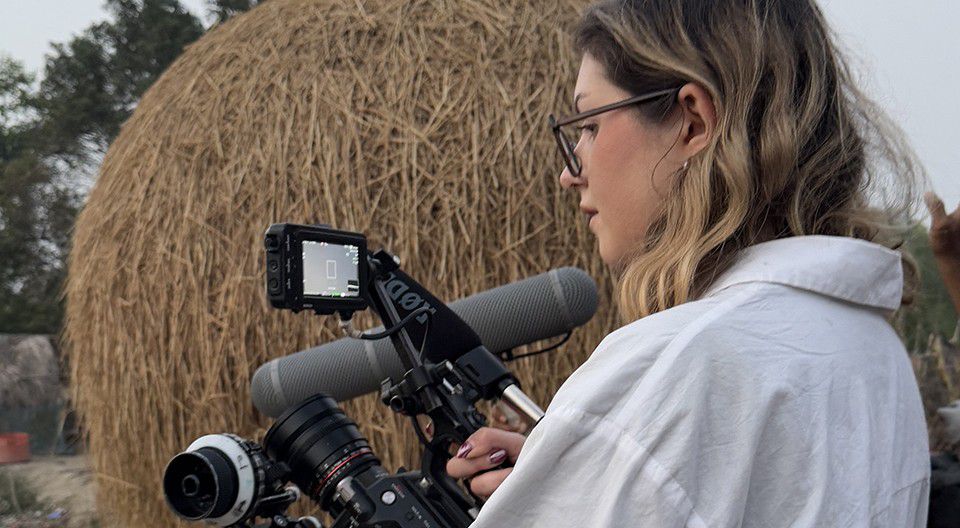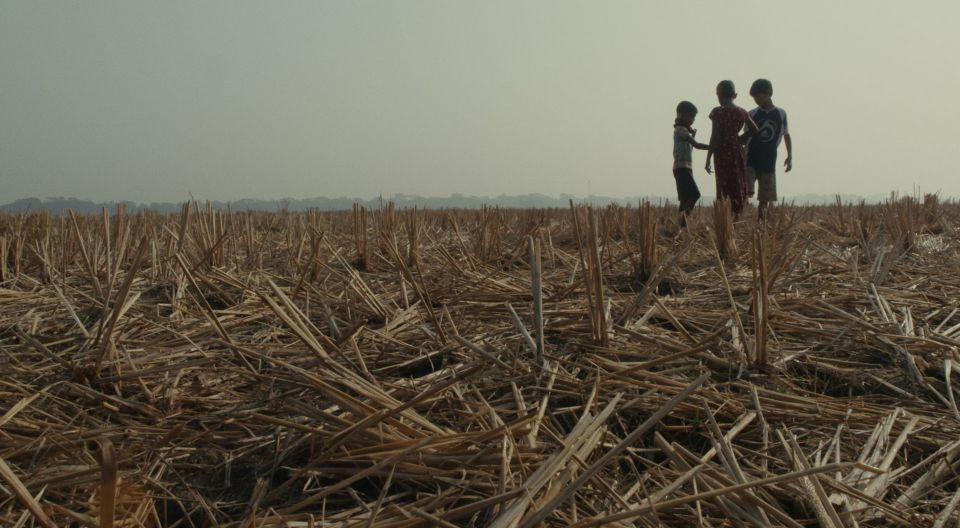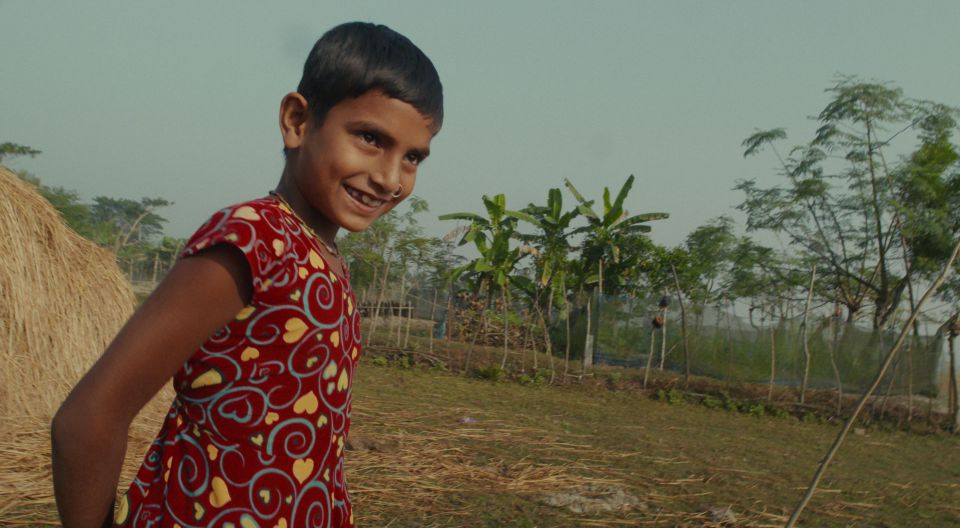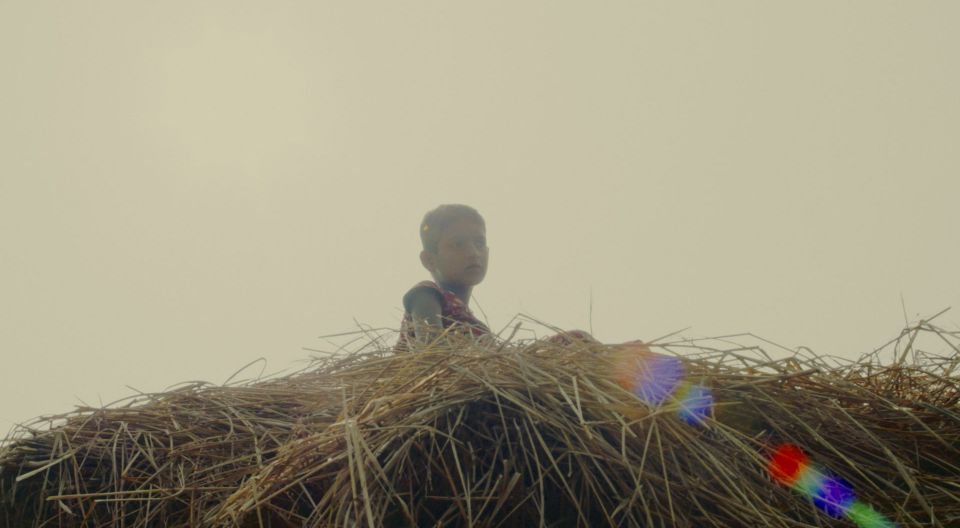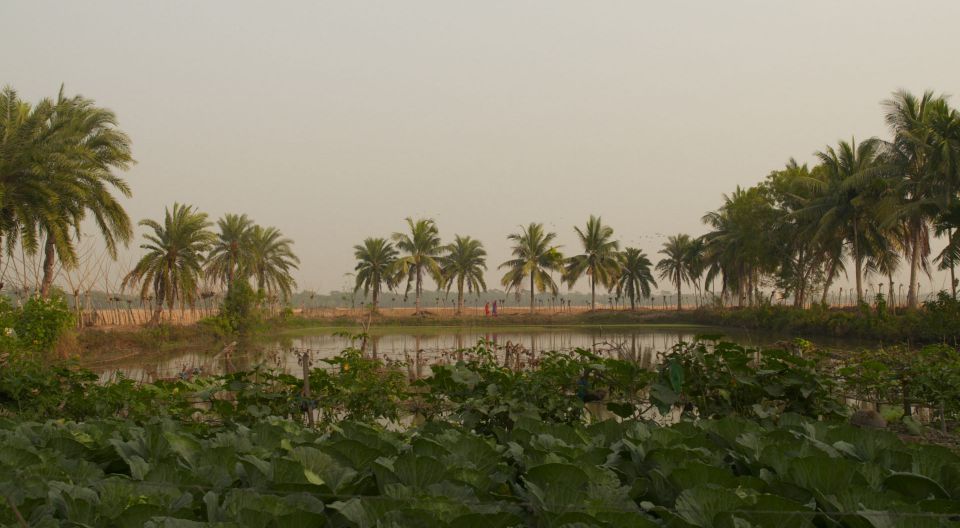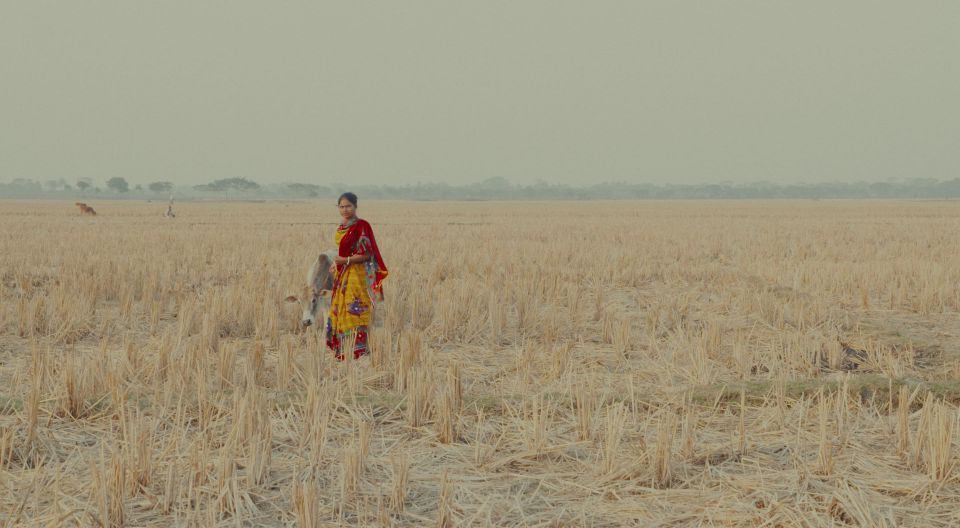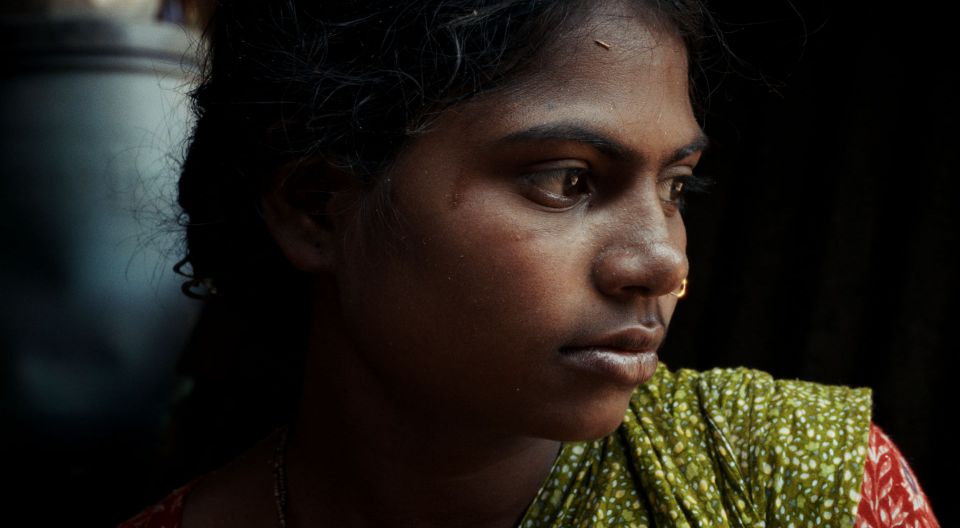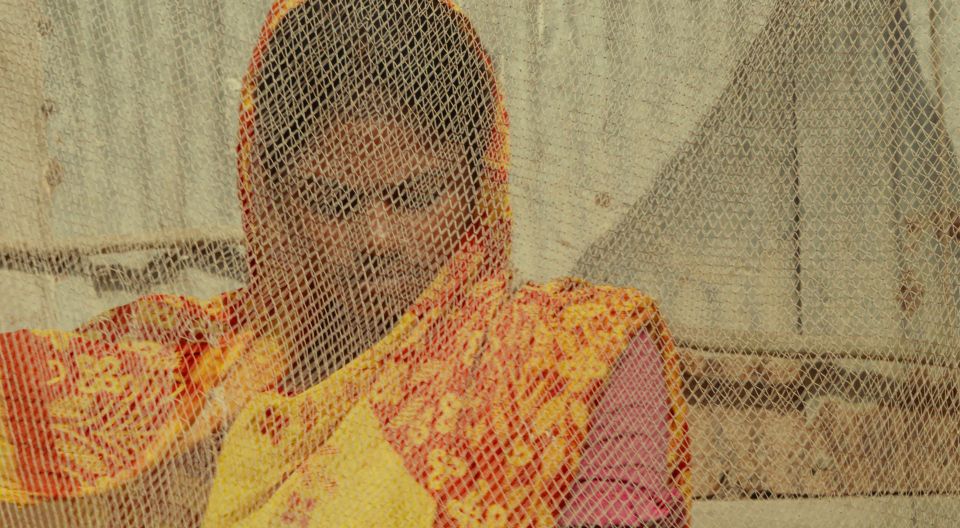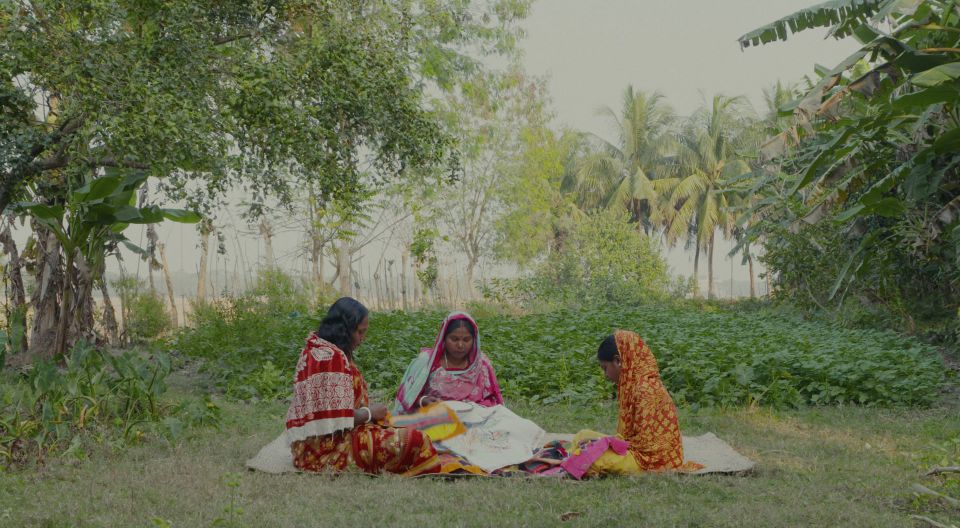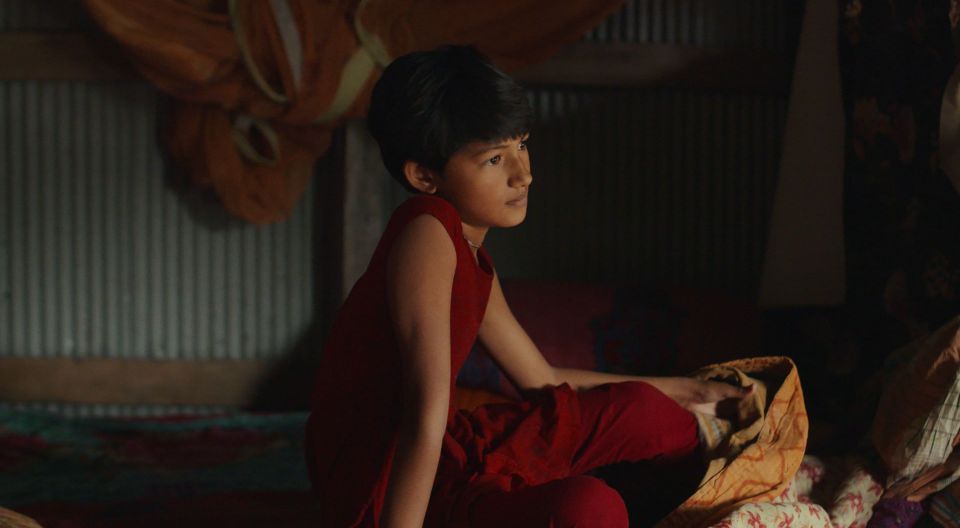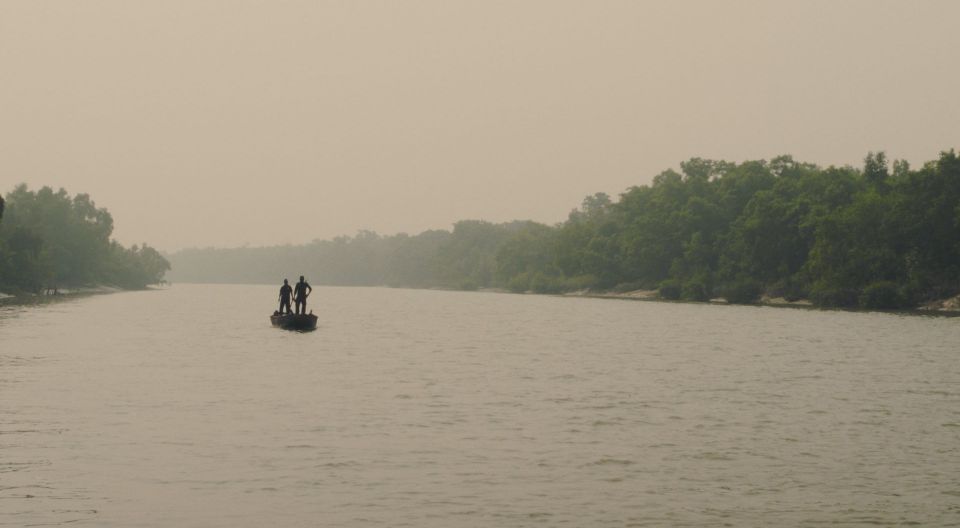31.
01.
2025.
Department
DOP
DOP
XYMENA ZARĘBA talks about being a camera operator on a boat, monkeys watching the crew and film production close to nature.
Xymena Zaręba, a student from the Cinematography Department at our School, participated in the Eco Film Lab residency in Bangladesh. Eco Film Lab is a residency organized by the IAFM (International Academy of Film and Media). Xymena worked in Bangladesh for two weeks with directors from Dhaka. In the Sundarban National Park, they created four short films together. Xymena was the cinematographer on all of them.
Jolanta Karpińska from the School Promotion Office: A culture that is distant from us, exotic nature, and the Bangla language, so difficult for us. How did you cope in Bangladesh?”
Xymena Zaręba: At first, I was terrified of this trip. Dhaka scared me (the capital of Bangladesh – editor's note) – it is chaotic, overcrowded, filled with smog and traffic jams. However, we were far from it – we lived in a resort near the jungle, in rural areas, full of farmland, but also wildlife. People there lead a life very close to nature, mainly eating what they grow or hunt themselves. They welcomed us very warmly and tried to help us with our work. We were surrounded by extraordinary vegetation and animals. I felt very good there.
J.K: You worked with directors living in Bangladesh, there was no one from your cultural background in the crew. Didn't that cause any difficulties?
X.Z: The language of film is universal. Even though we were so different from each other and spoke different languages, we understood each other. I had the impression that cinema connected us.
J.K – Where did the challenges arise?
X.Z - The pace of making the films was definitely a challenge. After the initial days of working on scripts, finding locations and actors (all those who played in our films were amateurs, living there) – in just five days we made three short fiction films and one documentary. Another challenge was to adjust the shooting schedule with the natural rhythm of life of the inhabitants of these areas. Prayers could be heard from a megaphone as early as 5 a.m. and they were repeated 4 times a day; the last one we heard at 6 p.m. People there wake up very early and go to bed quite early. Our assumption was to work without artificial lighting, as we mostly worked outdoors catching natural light.
J.K. – You also filmed in the jungle itself, how did nature react to the filmmakers? ”
X.Z. - Above our heads were monkeys and on the surface tree roots sticking out of the ground like thorns. But the most important thing is the shoot in the jungle was protected by armed men. We have to remember that in these areas there are tigers which can pose a real threat to humans. We made a documentary about it. Its protagonists are two women; the husband of one of them was killed by a tiger, the husband of the other one who is a young mother, is also exposed to such danger. This film has an unusual emotional charge. In Bangla there is even a special word for widows whose husbands died having been attacked by tigers. People there pray to Bonbibi, a deity who is supposed to protect them from these animals, a legendary protector of mangrove forests. They dedicate an annual festival to her, which we had the opportunity to participate in.
J.K. – Here we touch on the main topic of Eco Film Lab – ecology. Tigers are a threat, but they are also a treasure – a protected species.
X.Z – All the films we made touched directly or indirectly on ecology. In addition to the aforementioned documentary, three fiction shorts were made. The first focuses on water, access to it and its shortage. The second is a clash of two reasons, that of a man who lost a loved one to a tiger and a man who cares about the preservation of this species. The hero of the third is a fisherman who pollutes the water for his own profits, for which he is punished with his daughter's illness. Nature there has great power, it is an untamed force.
J.K. – How did you use your knowledge acquired at School in your work there? ”
X.Z. – Due to the conditions there and the equipment I had, I entered a documentary mode of work. The camera operating classes with Wojciech Staroń and Piotr Śliskowski were very useful. In addition, the framing practice, or knowledge of colour, which I learned at the School, were useful there.
J.K. – You also had the opportunity to pass on your know”ledge to students, what was that opportunity?
X.Z. – I gave a lecture to journalism students at the University of Dhaka. I showed short films made at our School, I talked about the School, about what we learn here. The students were very curious about us and asked a lot of questions. Girls were especially active – in the local film industry it is much harder for them than for us in Europe. They were also surprised by what we can show in our films – they have censorship.
J.K. Returning to the films you made in Bangladesh – will we have a chance to see them at our School?
X.Z – The films will now be post-produced, two of them in our School. So I hope that soon I will be able to show the effects of this exotic film expedition here. There is also a planned festival route for these films.
J.K. – Would you recommend such a trip and work in such exotic conditions to others? ”
X.Z. – Absolutely. I feel like I could do it again. I met wonderful people who love cinema as much as I do. I really enjoy combining work and travel. I'm glad I could work there. Everything there was new to me, every frame was interesting. Like from another planet.
Xymena, thank you very much for the interview and we look forward to your films.
We thank the International Academy of Film and Media and especially Bibesh Roy for creating great working conditions and taking care of Xymena during her stay in Bangladesh.
1. Photo of Xymena Zaręba at work
Here are the stills from the films shot by Xymena:
2-5 "The waterless path", dir. Prodipto Saha
6-9 "Atharo Vati" dir. Oddri Hredesh
10 "The ripple effect" dir. Kamrul Nahied
11 "Existence" dir. Tasnuva Nusrat
Jolanta Karpińska from the School Promotion Office: A culture that is distant from us, exotic nature, and the Bangla language, so difficult for us. How did you cope in Bangladesh?”
Xymena Zaręba: At first, I was terrified of this trip. Dhaka scared me (the capital of Bangladesh – editor's note) – it is chaotic, overcrowded, filled with smog and traffic jams. However, we were far from it – we lived in a resort near the jungle, in rural areas, full of farmland, but also wildlife. People there lead a life very close to nature, mainly eating what they grow or hunt themselves. They welcomed us very warmly and tried to help us with our work. We were surrounded by extraordinary vegetation and animals. I felt very good there.
J.K: You worked with directors living in Bangladesh, there was no one from your cultural background in the crew. Didn't that cause any difficulties?
X.Z: The language of film is universal. Even though we were so different from each other and spoke different languages, we understood each other. I had the impression that cinema connected us.
J.K – Where did the challenges arise?
X.Z - The pace of making the films was definitely a challenge. After the initial days of working on scripts, finding locations and actors (all those who played in our films were amateurs, living there) – in just five days we made three short fiction films and one documentary. Another challenge was to adjust the shooting schedule with the natural rhythm of life of the inhabitants of these areas. Prayers could be heard from a megaphone as early as 5 a.m. and they were repeated 4 times a day; the last one we heard at 6 p.m. People there wake up very early and go to bed quite early. Our assumption was to work without artificial lighting, as we mostly worked outdoors catching natural light.
J.K. – You also filmed in the jungle itself, how did nature react to the filmmakers? ”
X.Z. - Above our heads were monkeys and on the surface tree roots sticking out of the ground like thorns. But the most important thing is the shoot in the jungle was protected by armed men. We have to remember that in these areas there are tigers which can pose a real threat to humans. We made a documentary about it. Its protagonists are two women; the husband of one of them was killed by a tiger, the husband of the other one who is a young mother, is also exposed to such danger. This film has an unusual emotional charge. In Bangla there is even a special word for widows whose husbands died having been attacked by tigers. People there pray to Bonbibi, a deity who is supposed to protect them from these animals, a legendary protector of mangrove forests. They dedicate an annual festival to her, which we had the opportunity to participate in.
J.K. – Here we touch on the main topic of Eco Film Lab – ecology. Tigers are a threat, but they are also a treasure – a protected species.
X.Z – All the films we made touched directly or indirectly on ecology. In addition to the aforementioned documentary, three fiction shorts were made. The first focuses on water, access to it and its shortage. The second is a clash of two reasons, that of a man who lost a loved one to a tiger and a man who cares about the preservation of this species. The hero of the third is a fisherman who pollutes the water for his own profits, for which he is punished with his daughter's illness. Nature there has great power, it is an untamed force.
J.K. – How did you use your knowledge acquired at School in your work there? ”
X.Z. – Due to the conditions there and the equipment I had, I entered a documentary mode of work. The camera operating classes with Wojciech Staroń and Piotr Śliskowski were very useful. In addition, the framing practice, or knowledge of colour, which I learned at the School, were useful there.
J.K. – You also had the opportunity to pass on your know”ledge to students, what was that opportunity?
X.Z. – I gave a lecture to journalism students at the University of Dhaka. I showed short films made at our School, I talked about the School, about what we learn here. The students were very curious about us and asked a lot of questions. Girls were especially active – in the local film industry it is much harder for them than for us in Europe. They were also surprised by what we can show in our films – they have censorship.
J.K. Returning to the films you made in Bangladesh – will we have a chance to see them at our School?
X.Z – The films will now be post-produced, two of them in our School. So I hope that soon I will be able to show the effects of this exotic film expedition here. There is also a planned festival route for these films.
J.K. – Would you recommend such a trip and work in such exotic conditions to others? ”
X.Z. – Absolutely. I feel like I could do it again. I met wonderful people who love cinema as much as I do. I really enjoy combining work and travel. I'm glad I could work there. Everything there was new to me, every frame was interesting. Like from another planet.
Xymena, thank you very much for the interview and we look forward to your films.
We thank the International Academy of Film and Media and especially Bibesh Roy for creating great working conditions and taking care of Xymena during her stay in Bangladesh.
1. Photo of Xymena Zaręba at work
Here are the stills from the films shot by Xymena:
2-5 "The waterless path", dir. Prodipto Saha
6-9 "Atharo Vati" dir. Oddri Hredesh
10 "The ripple effect" dir. Kamrul Nahied
11 "Existence" dir. Tasnuva Nusrat
